Desert Dreams
Desert wild camping
7 days
guided
October - Mai
Join us for an unforgettable 5-day camping trip in the beautiful Tunisian desert! We’ll pick you up in Djerba and take you on a walking adventure in the Jebil National Park led by friendly local guides. You’ll get to camp under the stars and soak in the stunning desert landscapes. It’s the perfect adventure for anyone looking to escape and experience something truly special.
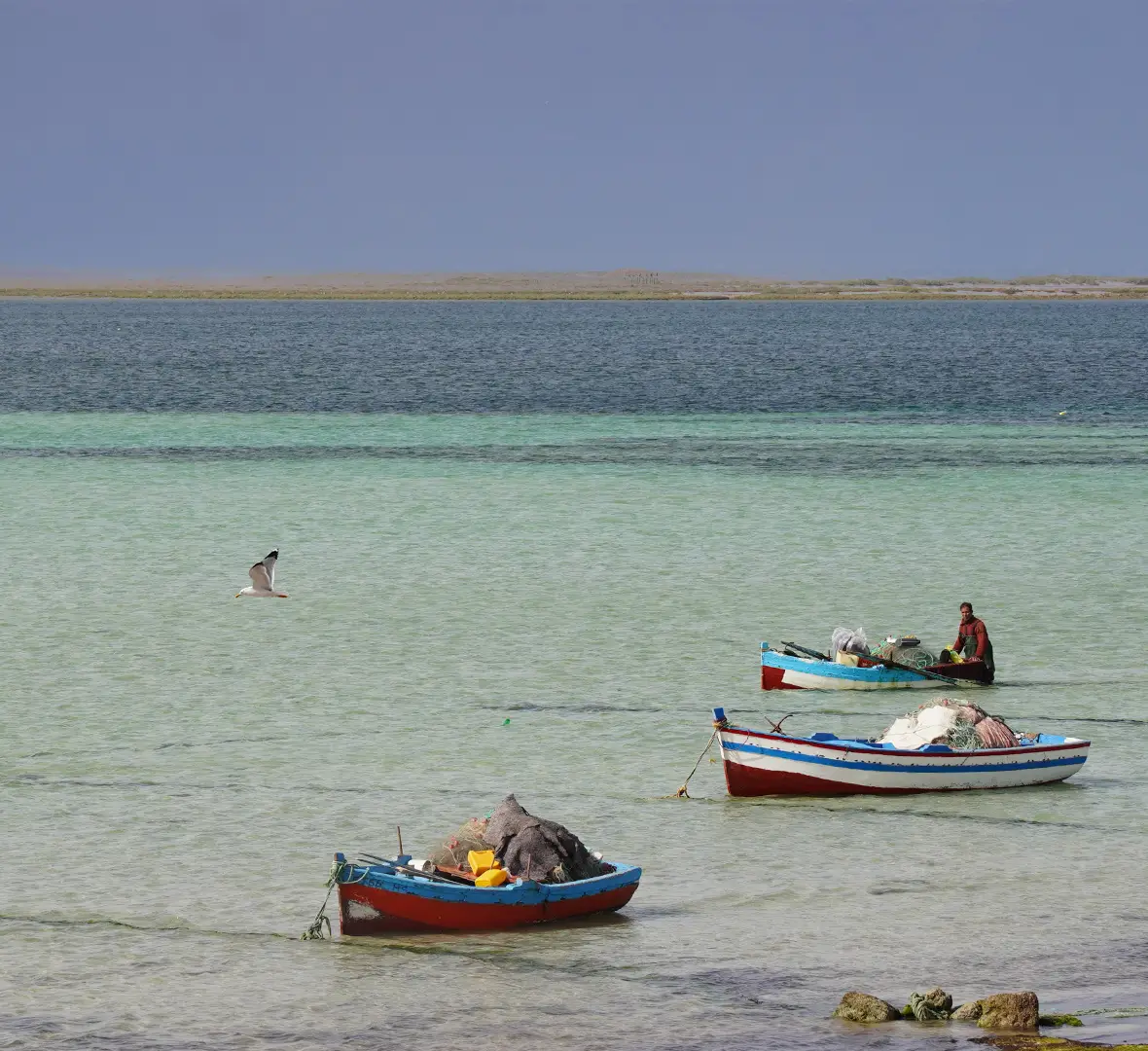
1. Djerba
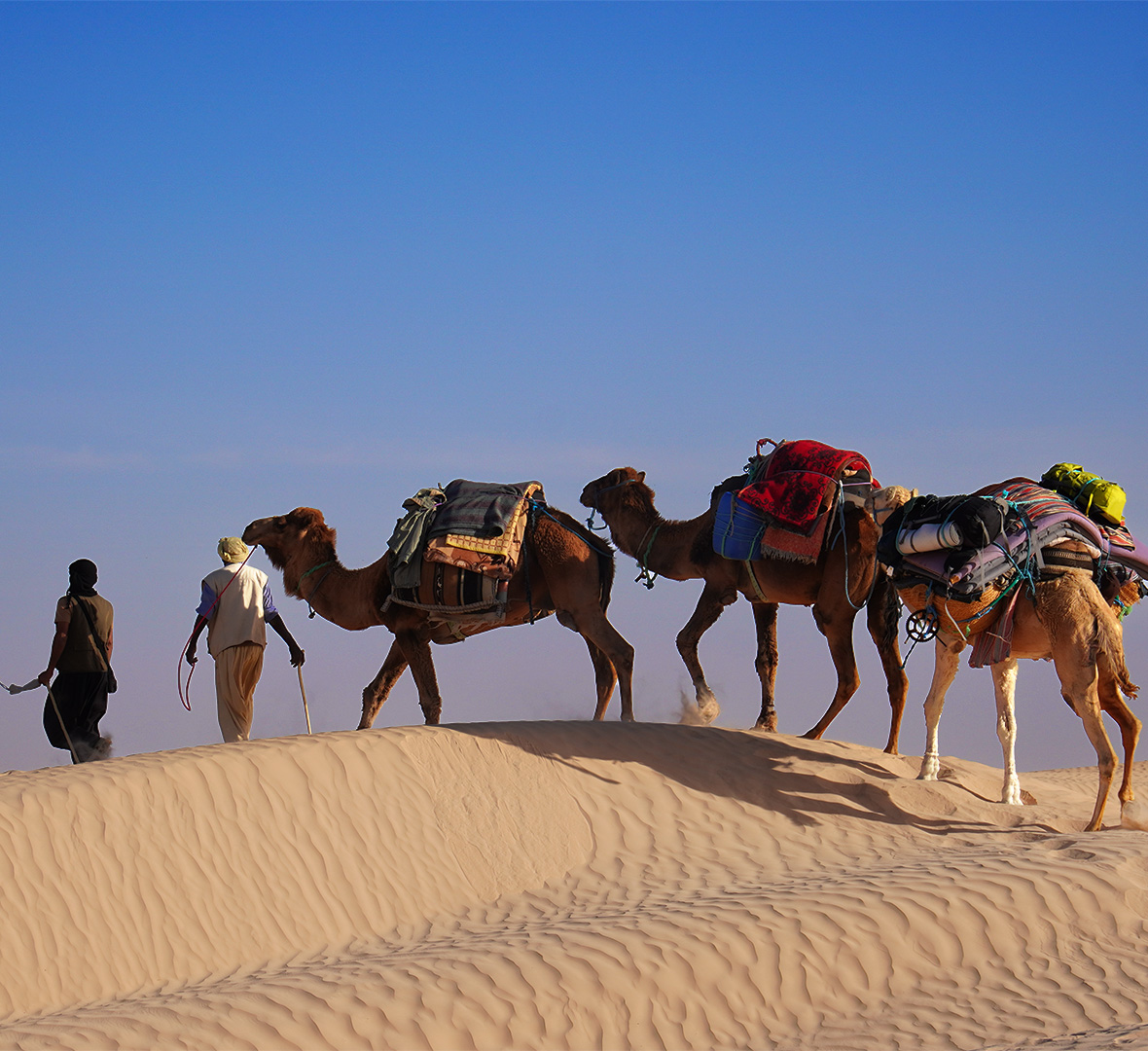
2. Douz
Douz, known as the “Gateway to the Sahara”, renowned for its vibrant culture and stunning landscapes, you can experience thrilling camel treks across vast dunes, witness breathtaking sunsets over the desert horizon, and immerse yourself in traditional Bedouin hospitality at desert wild camps. Douz invites you to discover the authenticity of nomad life, providing a unique opportunity to disconnect from the modern world and connect with the spiritual essence of the desert.
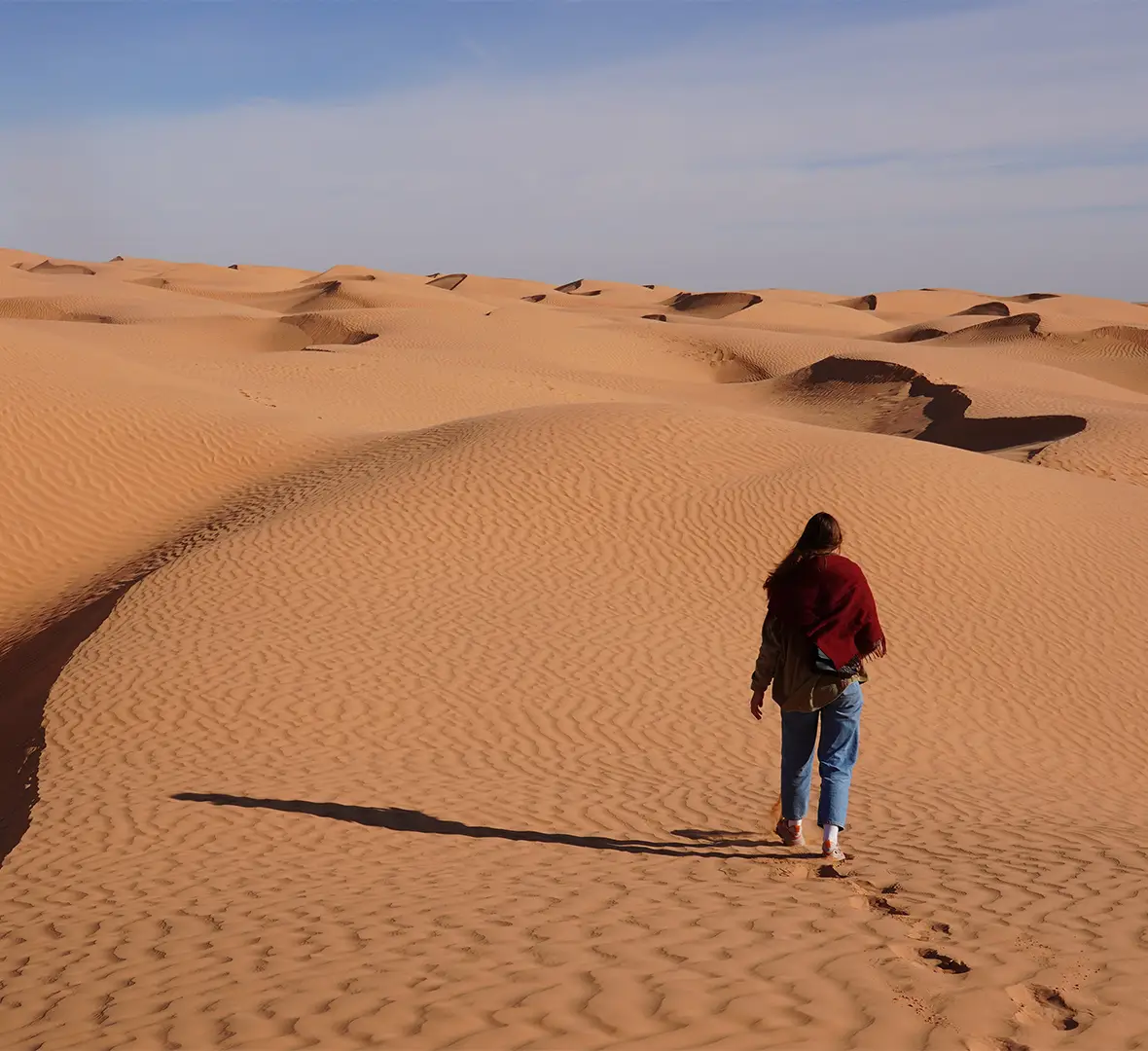
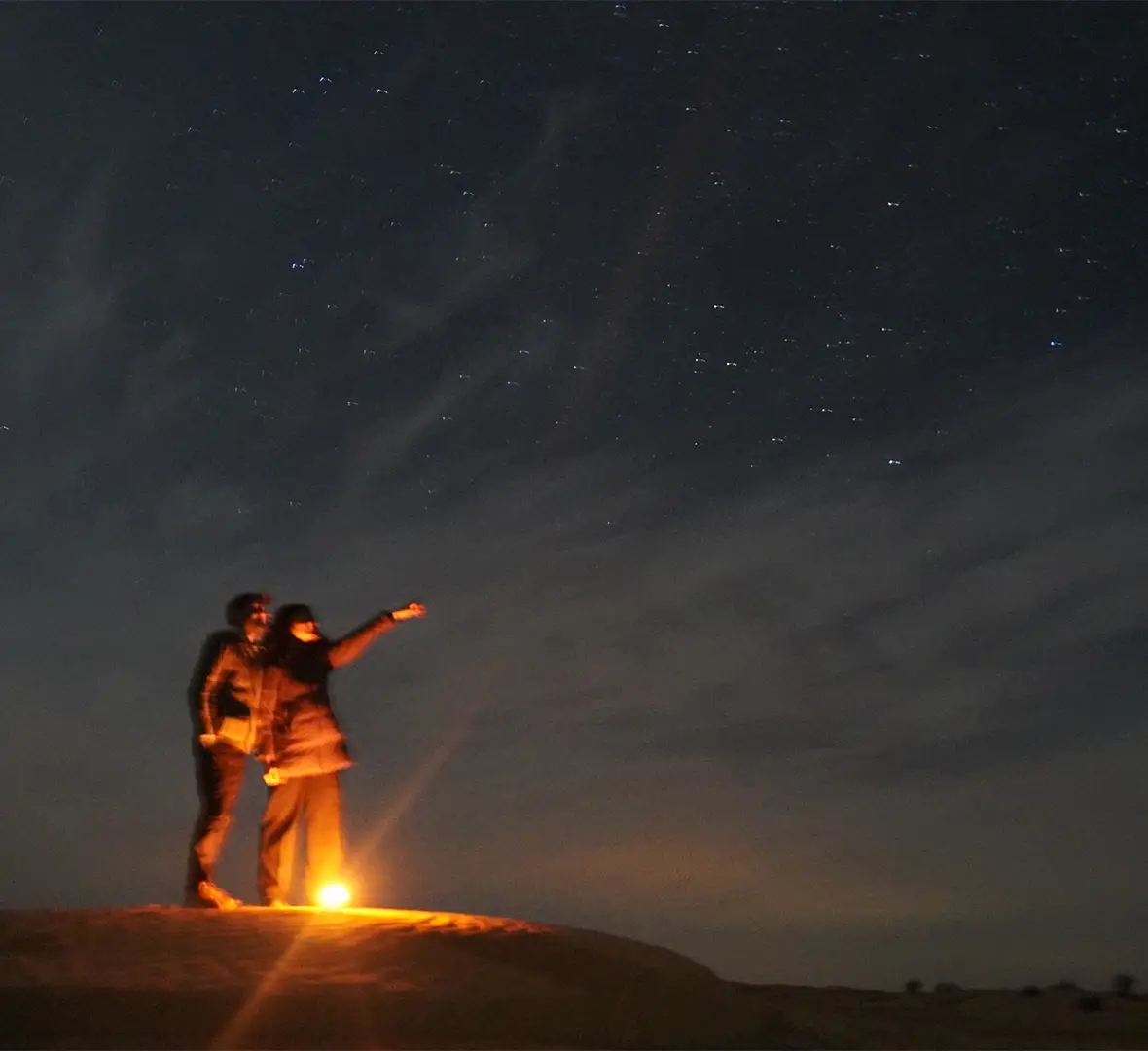
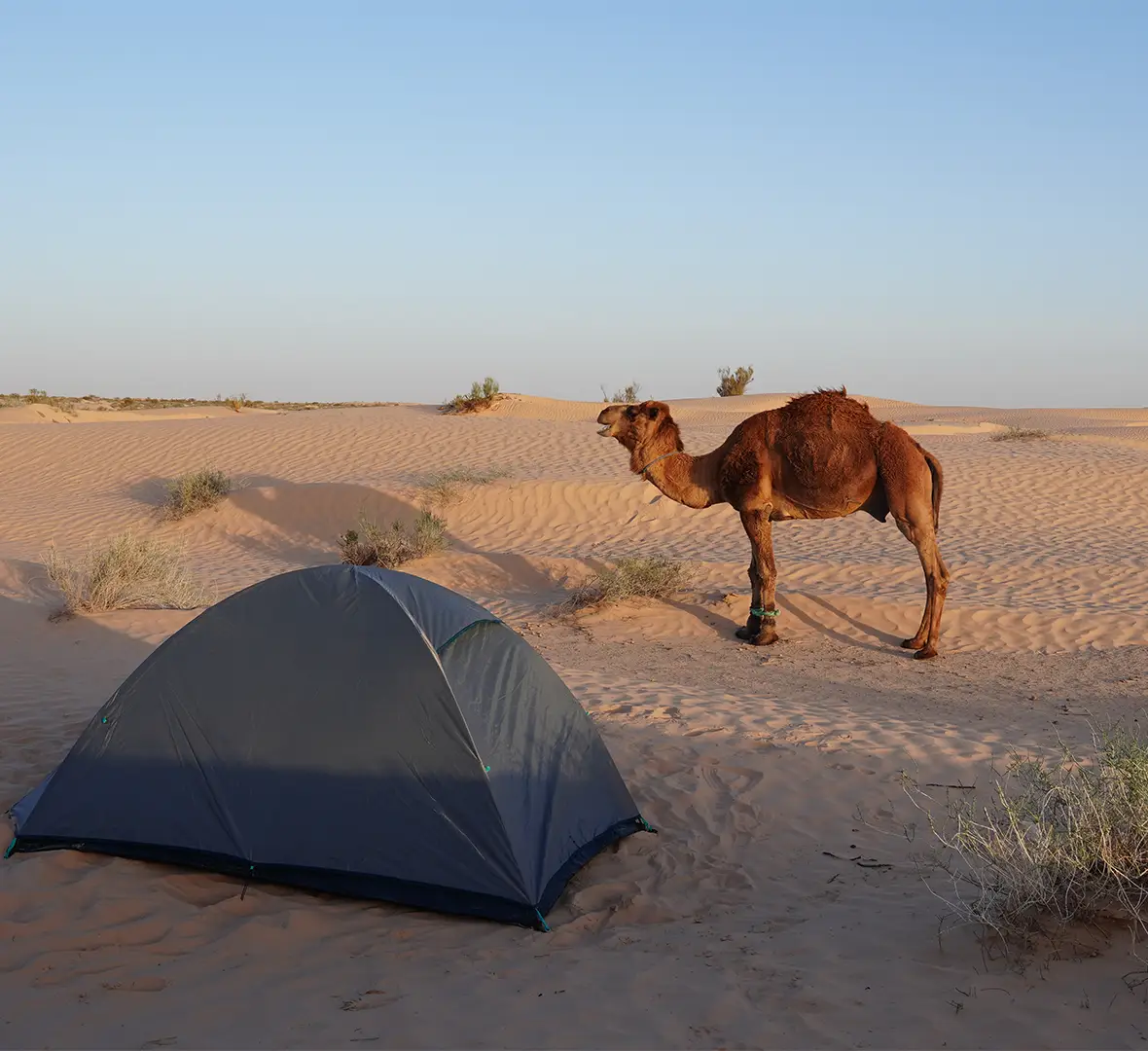
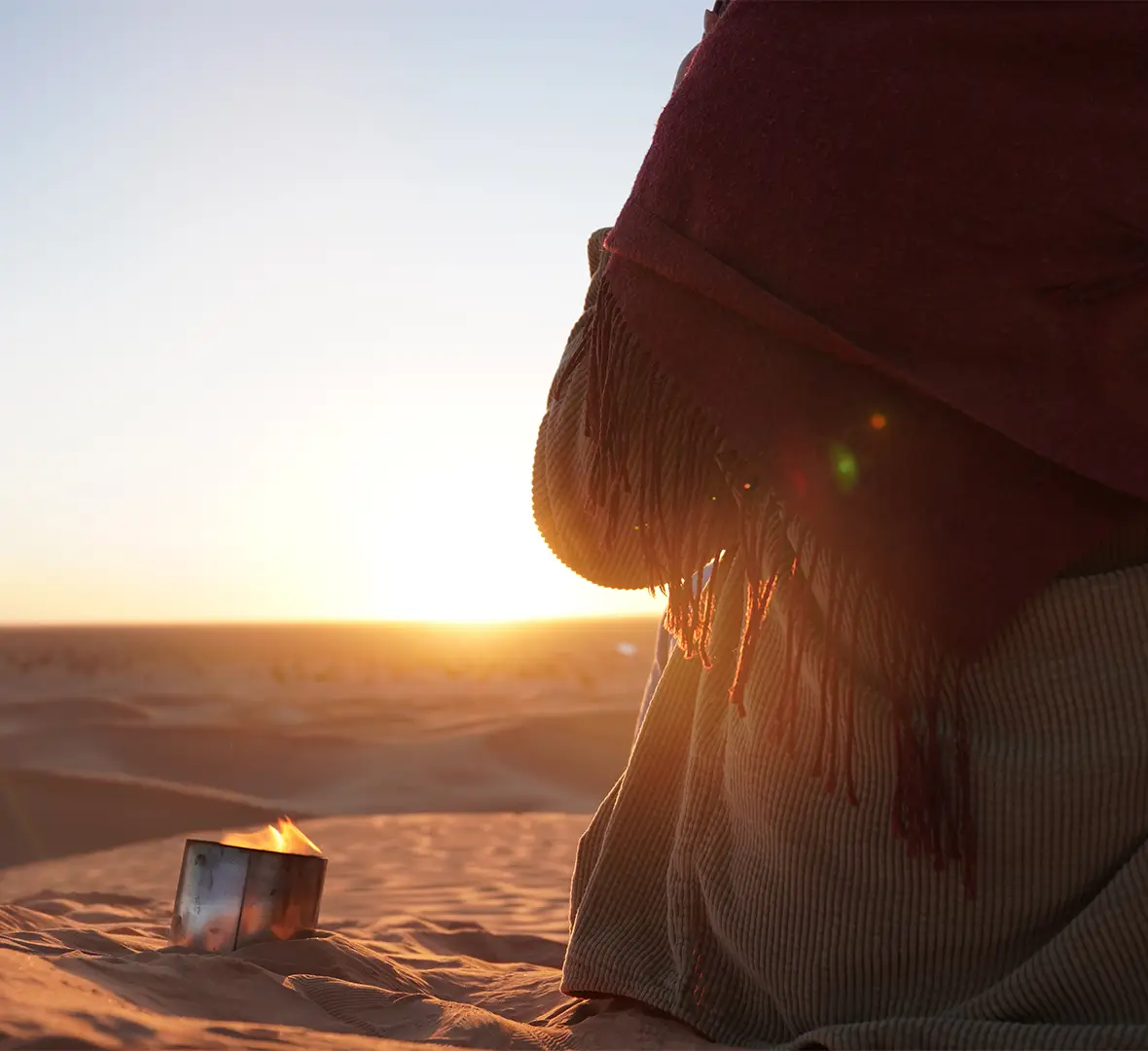
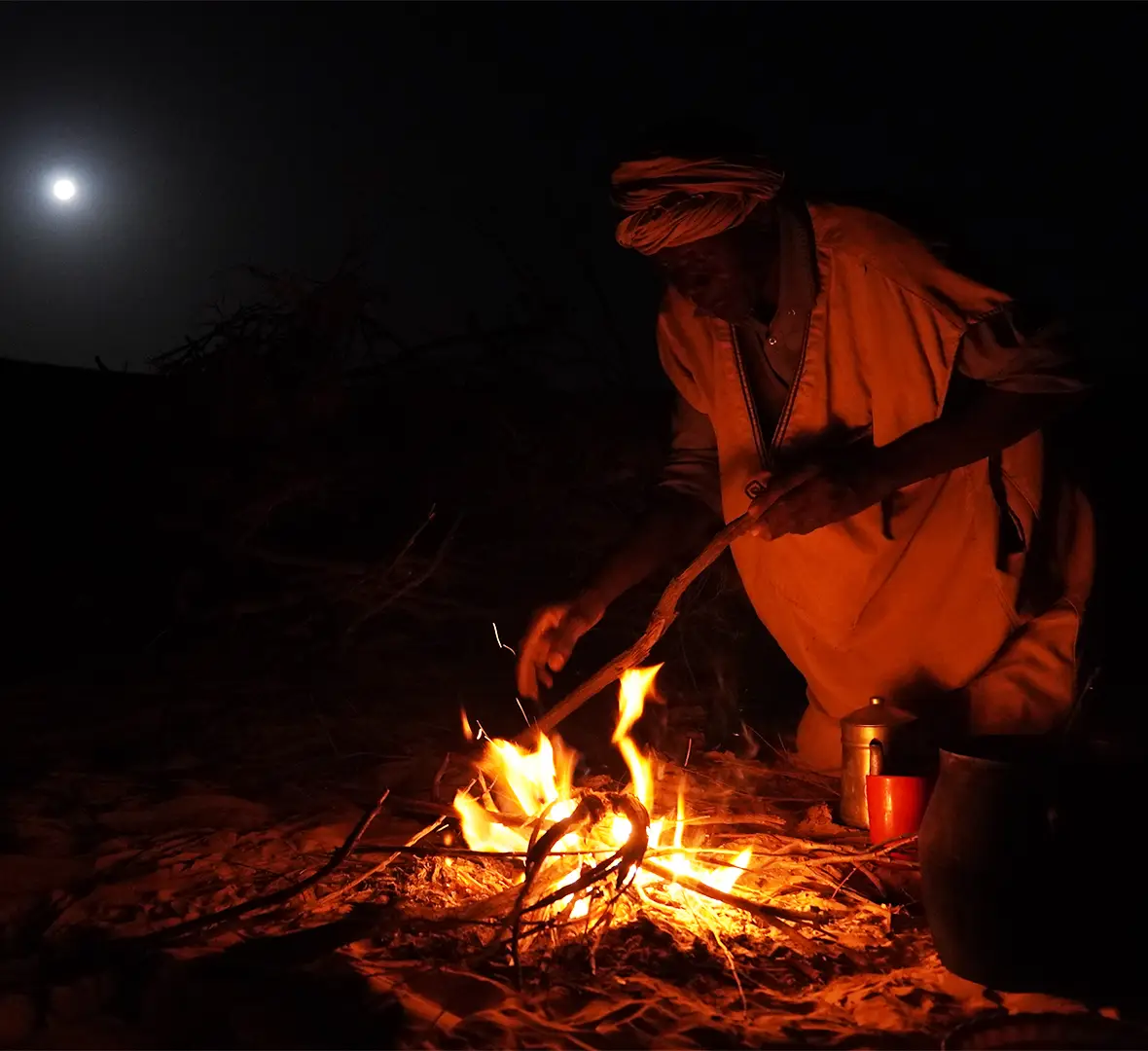
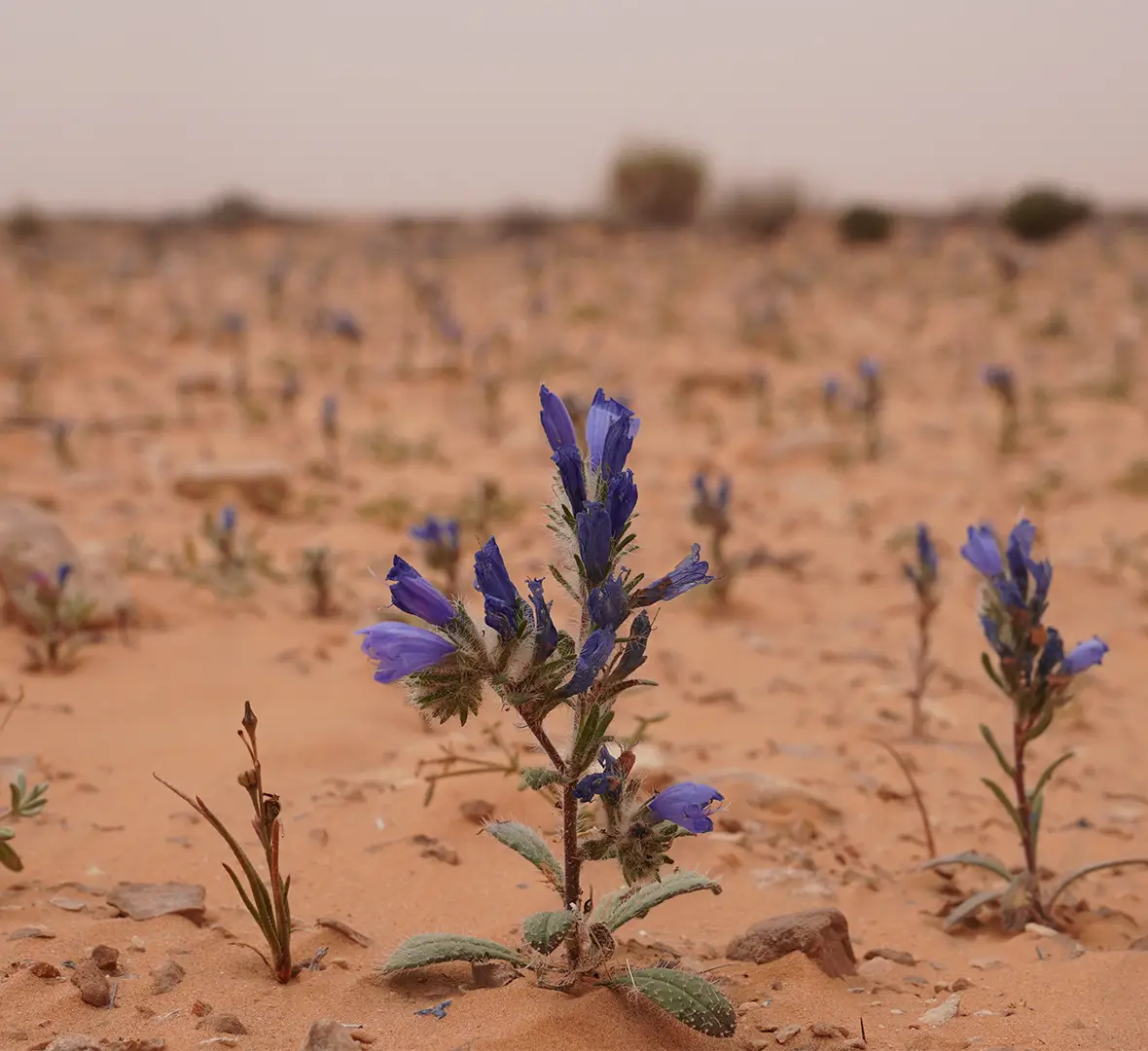
3. Jebil National Park
Jebil National Park, in the heart of Tunisia, is a true desert paradise. With its vast sand dunes and rich wildlife, it’s the perfect spot for nature lovers. Enjoy peaceful hikes, and get up close with unique plants and animals. At night, camp under a sky full of stars and soak in the serene beauty of the desert. Jebil National Park is your go-to for disconnecting from daily life and reconnecting with nature’s calm and wonder. Would you rather embark on thrilling 4×4 or quad adventures instead of walking? Drop us a line!
| No̱ of explorers | Price p.P |
|---|---|
| One Person | 1000 € |
| Two people | 950 € |
| Three People | 900 € |
| Four People | 850 € |
You can also customize your trip by sending us an email:
- Accommodations: Standard. Choose your accommodation style, and we’ll recommend suitable options.
- Meals: communicate your meal preferences and we will try to accommodate it
- Activities: Choose your interests, and we’ll suggest various activities based on your preferences.
Inclusive:
- Accommodation for 7 nights
- All meals
- All necessary private transfers
- Camping gear for the wild camping except for sleeping bags
Exclusive :
- International flight to Djerba
- Upgrade room type
- Travel and/or cancellation insurance
- Not mentioned meals and excursions
- Personal expenses/tips
What do you need to know about Tunisia?
Tunisia is a country located in North Africa, bordered by Algeria to the west, Libya to the southeast, and the Mediterranean Sea to the north and east. Here are some key points to know about Tunisia:
Capital and Major Cities: The capital city of Tunisia is Tunis, which is also the largest city. Other major cities include Sfax, Sousse, and Gabès.
Language: Arabic is the official language of Tunisia. French is also widely spoken and used in business, government, and education. English is less commonly spoken but is becoming more prevalent, especially in tourist areas and among the younger generation.
Culture: Tunisia has a rich cultural heritage influenced by its history of Phoenician, Roman, Arab, and French rule. The culture is a blend of North African, Mediterranean, and Arab-Islamic traditions. Tunisian cuisine is diverse, with dishes like couscous, tajine, and brik being popular.
Religion: Islam is the predominant religion in Tunisia, with the majority of the population being Sunni Muslims. However, the country has a history of religious tolerance, and there are small Christian and Jewish communities.
Government: Tunisia is a semi-presidential republic. The President is the head of state, and the Prime Minister is the head of government.
Economy: Tunisia has a diverse economy, with agriculture, manufacturing, services, and tourism being important sectors. The country is known for its production of olive oil, textiles, and phosphates. Tourism is a significant source of revenue, with attractions including ancient ruins, beaches, and desert landscapes.
History: Tunisia has a rich history dating back to ancient times. Carthage was an ancient city located in what is now modern-day Tunisia. It was part of the Carthaginian Empire, then became a Roman province known as Africa. In the 7th century, Arab-Muslim armies conquered the region, and it later came under Ottoman rule. Tunisia was a French protectorate from 1881 until gaining independence in 1956.
Tourism: Tunisia is a popular tourist destination known for its sandy beaches along the Mediterranean coast, ancient ruins such as Carthage and Dougga, and the Sahara Desert.
Overall, Tunisia is a country with a rich history, diverse culture, and natural beauty, making it a fascinating destination for travelers and a country of interest in geopolitics.
What are the means of payment?
In Tunisia, the means of payment commonly accepted include:
Cash: The Tunisian Dinar (TND) is the official currency, and cash transactions are widely used for daily expenses, especially in smaller shops, markets, and taxis.
Credit and Debit Cards: Major credit cards such as Visa, MasterCard, and sometimes American Express are accepted in many hotels, restaurants, and larger stores, particularly in tourist areas and major cities. However, smaller establishments and rural areas may prefer cash.
ATM Withdrawals: ATMs (Automated Teller Machines) are available and safe to use in urban areas and tourist spots, allowing you to withdraw cash using your debit or credit card. Make sure to check for any international transaction fees or currency conversion fees imposed by your bank.
Mobile Payment: Mobile payment options, such as digital wallets and mobile banking apps, are becoming increasingly popular in Tunisia. Services like Orange Money and Flooz are utilized for various transactions, including bill payments, money transfers, and purchases.
Traveler’s Checks: Although less common than they used to be, some banks and exchange offices may still accept traveler’s checks. However, they might not be as widely accepted as cash or cards.
Bank Transfers: For larger transactions or payments related to business or real estate, bank transfers can be arranged through local banks.
It’s always a good idea to carry a mix of payment methods, especially when traveling, to ensure you’re prepared for various situations and establishments’ preferences. Additionally, be mindful of exchange rates and any potential fees associated with currency conversion or international transactions.
How to get to Tunisia?
Getting to Tunisia primarily depends on your location and mode of transportation. Here are common ways to reach Tunisia:
- By Air:
- International Flights: Tunis-Carthage International Airport (TUN) is the primary gateway for international flights to Tunisia, situated in the capital city, Tunis. It serves as a hub for numerous airlines, offering direct flights from Europe, the Middle East, Russia, and various parts of Africa. Additionally, Tunisia is well-connected internationally through other major airports, including Monastir Habib Bourguiba International Airport (MIR) and Djerba Zarzis International Airport (DJE).
- Regional Flights: Apart from Tunis, some airlines also operate flights to other Tunisian cities such as Monastir Habib Bourguiba International Airport (MIR) and Enfidha-Hammamet International Airport (NBE). These airports primarily serve seasonal and charter flights, especially during the tourist season.
- By Sea:
- Ferries: Ferries operate between Tunisia and several European ports, including Marseille (France), Genoa (Italy), and Palermo (Sicily, Italy). Major ferry operators such as CTN (Compagnie Tunisienne de Navigation) and Corsica Linea offer regular services.
- By Land:
- From Neighboring Countries: Tunisia shares land borders with Algeria and Libya. However, crossing these borders by land may not always be straightforward due to various factors, including border controls and security concerns. It’s essential to check the current situation and any travel advisories before attempting a land border crossing.
- Visa Requirements:
- Check the visa requirements for your nationality before traveling to Tunisia. Many nationalities are eligible for visa-free entry or visas on arrival for tourism purposes, but it’s crucial to verify this information in advance.
- Travel Restrictions:
- Check the latest travel advisories and entry requirements from official sources before planning your trip.
- Local Transportation:
- Upon arrival in Tunisia, you can utilize various modes of local transportation, including taxis, rental cars, buses, and trains, to travel within the country and explore its attractions.
Before traveling to Tunisia, it’s advisable to research and plan your trip thoroughly, considering factors such as transportation options, accommodation, and cultural considerations. Additionally, stay informed about any developments or changes in travel conditions that may affect your journey.
How does the Tunisia's healthcare system work?
Travel Health Insurance:
- It is highly recommended for tourists to have travel health insurance that covers medical expenses, including emergency medical treatment and evacuation if needed. This insurance should also cover any pre-existing conditions and activities planned during the trip.
Private Healthcare Facilities:
- Tourists may choose to seek medical care at private healthcare facilities, which often provide services in multiple languages and may offer more comfortable amenities. These facilities typically accept cash payments, credit cards, or travel insurance for services rendered.
International Medical Assistance:
- Many countries offer international medical assistance services or hotlines that travelers can contact in case of medical emergencies abroad. These services can provide guidance, assistance with finding medical facilities, and coordination of medical evacuations if necessary.
Public Healthcare Facilities:
- While public healthcare facilities in Tunisia may be more affordable, they may not always offer the same level of comfort or language support for international tourists. However, emergency medical treatment is provided to everyone, regardless of nationality or ability to pay.
Pharmacies:
- Pharmacies are abundant in Tunisia and can be found in most cities and tourist areas. They provide access to medications, including prescription and over-the-counter drugs. Pharmacists in Tunisia are generally knowledgeable and can assist with minor ailments and medication needs.
Health Precautions:
- Tourists should take necessary health precautions before traveling to Tunisia, such as ensuring they are up-to-date on routine vaccinations, including those for measles, mumps, rubella, rabies, and influenza. Depending on the time of year and specific travel plans, additional vaccinations or preventive measures may be recommended. (Traveler’s health in Tunisia)
Language Considerations:
- While French is widely spoken in Tunisia, especially in urban areas and tourist destinations, English proficiency may vary. It’s helpful for tourists to carry a basic medical phrasebook or translation app to facilitate communication with healthcare providers if needed.
By being prepared and informed about healthcare options and considerations in Tunisia, tourists can ensure they have access to appropriate medical care and assistance during their visit.
Furthermore, the WHO website is a valuable source of information that will provide you with important insights into health issues while traveling.
Is the Tunisia safe?
Tunisia is generally considered safe for tourists. However, like any destination, it’s essential to stay informed about the current situation and take necessary precautions to ensure a safe and enjoyable trip. Here are some points to consider regarding safety in Tunisia:
Travel Advisories: It’s advisable to check the travel advisories issued by your country’s government before traveling to Tunisia. These advisories provide updated information on safety and security concerns and may include specific travel warnings or recommendations for certain areas.
Crime: Petty crimes such as pickpocketing and theft can occur, especially in crowded tourist areas and public transportation. Tourists should remain vigilant and take precautions to safeguard their belongings, avoid displaying valuables openly, and be aware of their surroundings.
Natural Hazards: Tunisia is prone to occasional natural hazards such as minor earthquakes and sandstorms. It’s essential to stay informed about weather conditions and follow any instructions or advisories from local authorities.
Emergency Services: Familiarize yourself with emergency contact information, including the local equivalents of 911 or the equivalent emergency services number, as well as the location of the nearest embassy or consulate of your home country.
Police Emergency: 197
Fire Department (pompiers): 198
Emergency Medical Team/Ambulance (SAMU): 19
Overall, while Tunisia is generally very safe for tourists, it’s essential to remain vigilant, stay informed about the local situation, and take necessary precautions to ensure a safe and enjoyable experience. By being aware of your surroundings and following common-sense safety practices, you can minimize any potential risks during your visit to Tunisia.
What is the local food?
Tunisian cuisine is a vibrant mix of Mediterranean and North African flavors. Some popular dishes include couscous, brik (fried pastry with a savory filling), merguez (spicy sausage), harissa (a hot chili paste), and various seafood dishes. Tunisian cuisine also features a wide array of flavorful salads, appetizers, and pastries influenced by French, Italian, and Arabic culinary traditions.
In Tunisia, while tap water is generally safe, it is recommended to drink bottled, which is widely available.
When it comes to fast food, while most local vendors maintain good hygiene standards, others may not, increasing the risk of food-borne illnesses. To minimize the risk, consider eating at reputable establishments with a high turnover of customers and visible food preparation areas. Additionally, opt for freshly cooked items and avoid consuming food that has been sitting out for long periods.
Overall, with proper precautions, tourists can enjoy a variety of food options in Tunisia while minimizing the risk of food-related health issues.
What weather to expect?
In Tunisia, the weather varies depending on the season and region. Here’s what you can generally expect:
Summer (June to August): Summers in Tunisia are hot and dry, with temperatures often exceeding 30°C (86°F) and occasionally reaching above 40°C (104°F) in inland areas. Coastal regions experience slightly milder temperatures due to the cooling effect of the Mediterranean Sea. It’s typically sunny with minimal rainfall during this time, making it ideal for beach vacations.
Spring (March to May) and Autumn (September to November): Spring and autumn are pleasant seasons in Tunisia, with mild temperatures ranging from 20°C to 30°C (68°F to 86°F). These seasons are characterized by warm days, cooler nights, and occasional rainfall. Spring is particularly beautiful, with blooming flowers and green landscapes.
Winter (December to February): Winters in Tunisia are mild along the coast but cooler inland and in the higher elevations. Daytime temperatures range from 10°C to 20°C (50°F to 68°F) on average, while nighttime temperatures can drop significantly, especially in the desert regions. Rainfall is more frequent during the winter months, and snowfall is possible in the mountainous areas of the northwest.
Overall, Tunisia enjoys a Mediterranean climate with hot, dry summers and mild, wet winters. Coastal areas offer milder temperatures year-round, while inland regions experience greater temperature fluctuations. It’s essential to check the weather forecast before traveling and pack accordingly, especially if you plan to visit during the summer or winter months.
What clothing to bring?
When packing clothing for Tunisia, consider the season and the activities you plan to engage in. Here are some general guidelines:
Summer (June to August):
- Lightweight and breathable clothing such as shorts, t-shirts, sundresses, and skirts.
- Swimsuits and beachwear if you plan to spend time by the coast.
- Sunhat, sunglasses, and sunscreen to protect yourself from the intense sun.
- Light jacket or sweater for cooler evenings, especially in inland areas.
Spring (March to May) and Autumn (September to November):
- Light layers such as t-shirts, long-sleeve shirts, and light sweaters or jackets.
- Comfortable pants or jeans for cooler mornings and evenings.
- Closed-toe shoes for walking and exploring, as well as sandals or sneakers for warmer days.
- Rain jacket or umbrella for occasional showers, especially in spring.
Winter (December to February):
- Warmer clothing such as sweaters, jackets, and coats, especially for inland and mountainous areas where temperatures can drop significantly.
- Long pants and jeans for cooler weather, along with thermal underwear if visiting desert regions or high elevations.
- Scarves, gloves, and hats for added warmth, especially in the evenings.
- Waterproof footwear for rainy days, particularly in coastal areas.
Regardless of the season, it’s advisable to pack modest clothing if you plan to visit religious sites.
Lastly, don’t forget to pack comfortable walking shoes, as Tunisia offers plenty of opportunities for exploring historical sites, markets, and natural landscapes.
Do I need a visa?
Visa requirements for visiting Tunisia vary depending on your nationality and the purpose and duration of your stay. Here are some general guidelines:
Visa-Free Entry: Citizens of many countries, particularly from Europe, the United States, Canada, and several other countries, can enter Tunisia visa-free for short stays (usually up to 90 days) for tourism or business purposes. These travelers typically receive a stamp on arrival at the airport or other entry points.
Visa on Arrival: Some nationalities that are not eligible for visa-free entry may obtain a visa on arrival at Tunisian airports or border crossings. This usually involves filling out a visa application form and paying a fee upon arrival.
E-Visa: Tunisia offers an e-visa system for citizens of certain countries, allowing them to apply for a visa online before traveling. The e-visa is then electronically linked to the traveler’s passport and can be used for entry into Tunisia.
Advance Visa Application: Citizens of some countries are required to obtain a visa from a Tunisian embassy or consulate before traveling. This typically involves submitting a visa application form, along with supporting documents such as a passport, itinerary, and proof of accommodation.
It’s essential to check the visa requirements specific to your nationality before traveling to Tunisia. You can find this information on the official website of the Tunisian embassy or consulate in your country or through the Tunisian Ministry of Foreign Affairs. Additionally, make sure your passport is valid for at least six months beyond your planned date of departure from Tunisia.
What type of electrical supply and power outlets can I expect?
In Tunisia, the standard voltage is 230 volts and the frequency is 50 Hz. The power plugs and sockets used are of type C and E. Type C plugs have two round pins and are similar to plugs used in many European countries. Type E plugs are similar to type C but have an additional grounding pin.
If you’re traveling from a country that uses a different type of plug, such as type A or type B (commonly used in the United States), you will need a plug adapter to fit your devices into Tunisian power outlets.
It’s always a good idea to bring a universal adapter that can accommodate various plug types, ensuring you can charge your electronic devices while in Tunisia.

